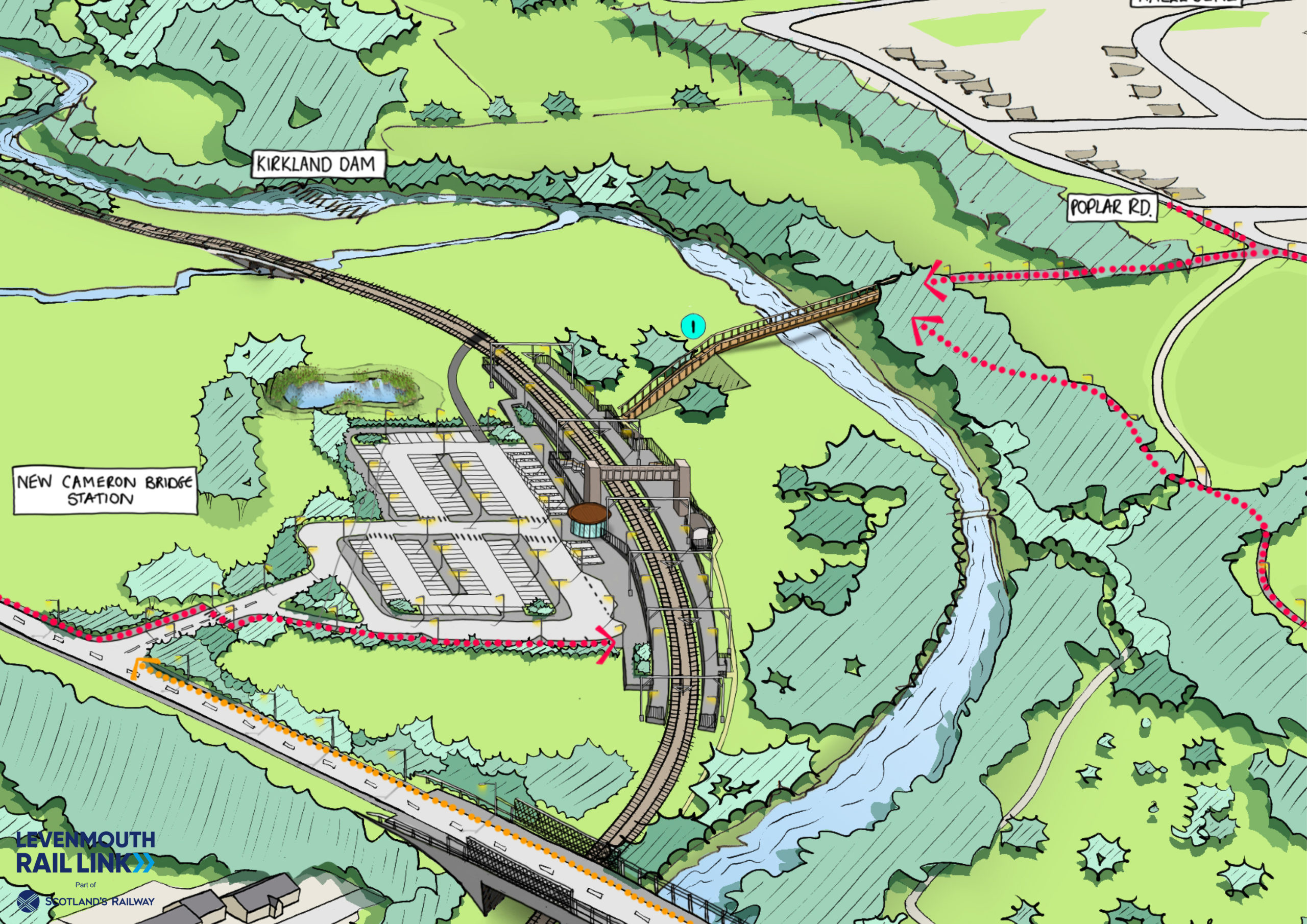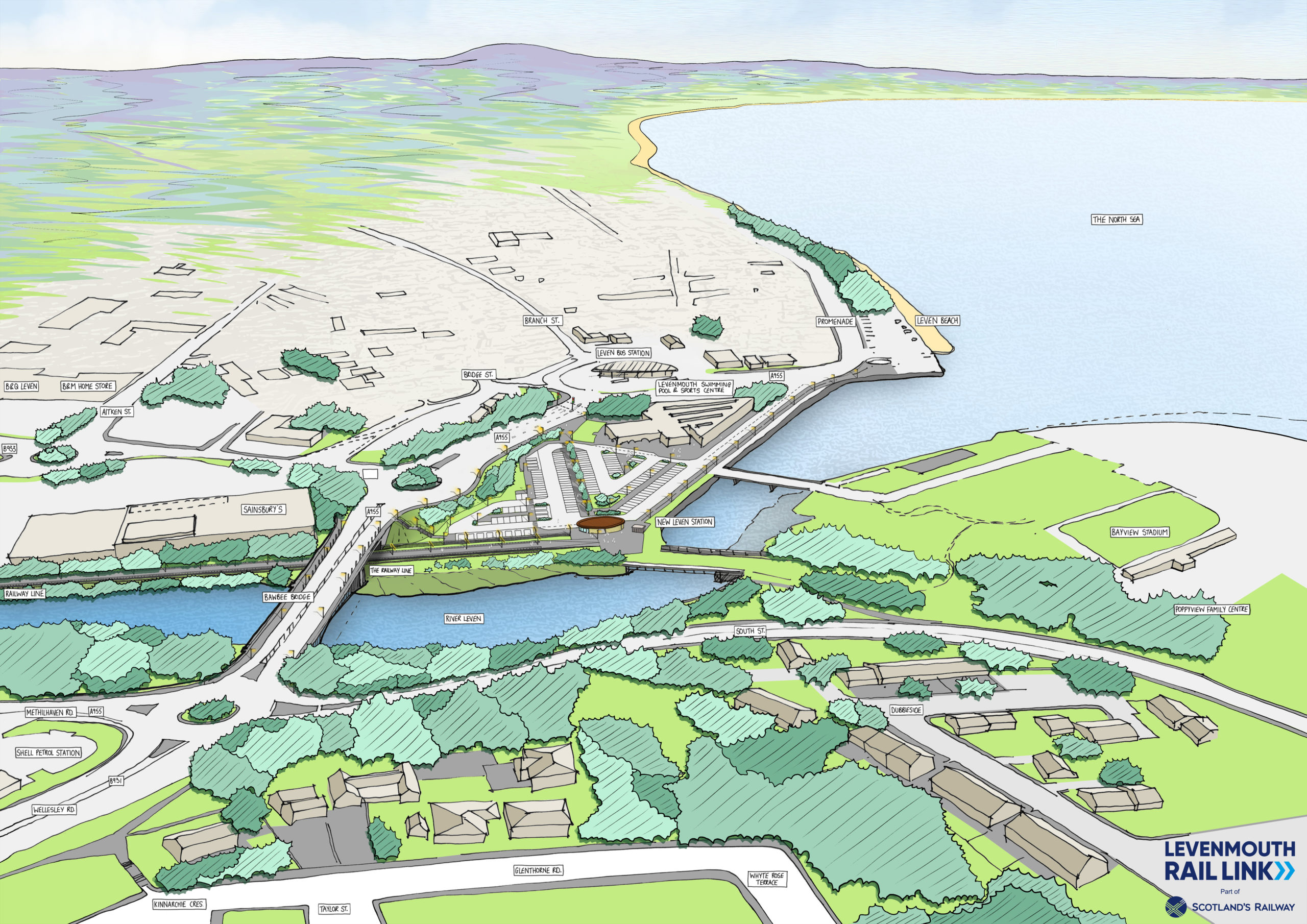
PLANNING applications have been submitted for the build of two train stations at Cameron Bridge and Leven as part of the £116 million Levenmouth rail link project.
It is the latest milestone in the development and delivery of the project that will reconnect the local community to the mainline rail network for the first time in over half a century.
Proposals for Cameron Bridge show a two-platform station with footbridge and lifts, as well as waiting shelters and ticket machines. The blueprint also outlines a carpark area that will initially offer 125 spaces with a contingency to grow to more than 300 spaces.

The plan for Leven will see a station with a 210-metre island platform accessed on the level – eliminating the need for a footbridge and lifts. Although it includes some parking, the design of walkaways enables direct connectivity to the High Street, to the promenade as well as to the bus station to prioritise transport interchange and use of enhanced active travel routes.
Network Rail revealed that, ahead of submitting the plans, more than 300 local people visited their community events in Methilhill and Leven to view the proposals, offer their views, and ask questions directly to the project team.
Lisa Cameron, Network Rail’s planning lead for the station developments, said, “We are delighted that local people are taking a great interest in the plans for the stations and the enthusiasm and positivity around the project is fantastic.
“The submission of the planning applications for the station developments is another massive step forward on the road to putting Leven and Cameron Bridge back on the railway map and it is great to see so many local people engaging with the development.
“Securing planning permission for the developments will enable us to then focus fully on the delivery of the stations that will be the gateway to the network for communities that have been denied access to the railway for more than fifty years.”








